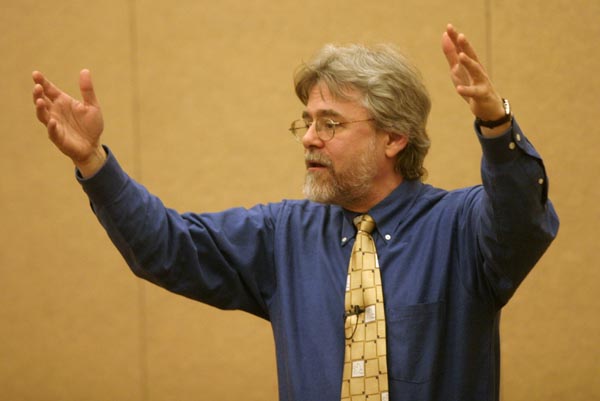excerpt from N.T. Wright's Simply Christian
...we can see at last the multiplicity of ways in which the Israel of Jesus's own day was able to think and speak about the coming together of heaven and earth. We noticed in the previous chapter how the Temple functioned this way. The Glorious Presence of YHWH, dwelling in the tent, and then in the Temple itself, was referred to as "the tabernacling"---that is, the Shekinah; it was a way of the God of heaven being present on earth with and for his people. By Jesus's day similar ideas were being developed in relation to the Torah, God's gift to his redeemed people; if you kept the Torah, it was as though you were in the Temple itself--that is, at the place where heaven and earth met. We saw a moment ago another strand that points in the same direction: God's "word," the word by which all things are made, will go out once more to make all things new. Similar things could be said about God's "wisdom," an idea which begins, it seems, with the notion that when God made the world he did so wisely, and develops until "Wisdom" becomes a figure in her own right ...Finally going back once more to Genesis, God's powerful wind, his breath, his Spirit (all three are ways of translating the same original word) is let loose in the world to bring new life.Simply Christian: Why Christianity Makes Sense N.T. Wright (Harper SanFransico) $22.95
Presence, Torah, Word, Wisdom, and Spirit: five ways of saying the same thing. The God of Israel is the creator and redeemer of Israel and the world. In faithfulness to his ancient promises, he will act within Israel and the world to bring to its climax the great story of exile and restoration, of the divine rescue operation, of the king who brings justice, of the Temple that joins heaven and earth, of the Torah that binds people together, and of creation healed and restored. It is not only heaven and earth that are to come together. It is God's future and God's present.
It's a wonderful dream. Rich, multi-layered, full of pathos and power. But why should anyone suppose that it---or anything else that might be built upon it---is anything more than a dream? Why should we imagine it's true?
The whole New Testament is written to answer that question. And the answers all focus, of course, on Jesus of Nazareth.





<< Home